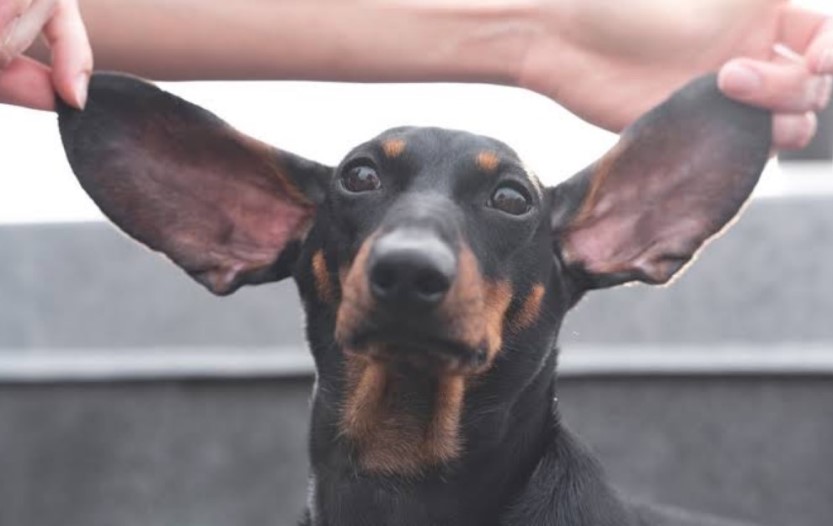Are you thinking of buying a Dachshund for yourself? Well, It’s not an easy decision to make. A puppy or a dog is equivalent to a family member. You must remember that you are bringing a member home, not a pet.
Oh boy, owning a Dachshund is a hoot and a half! I mean, have you seen those wiggly little sausages?! As a proud Dachshund parent myself, I’ve learned a thing or two about what to consider before bringing one of these pups into your life.
So, before you run out and buy the first little sausage dog you lay your eyes on, let’s chat about some important things to consider. Are you ready to become a pet parent? Can you handle all the quirks and cuteness that come with a Dachshund? And, most importantly, have you picked out the perfect wienie for you?
Now, with that out of the way, what to look for when buying a Dachshund puppy? You should look for whether you want a male or female, which Dachshunds fit in your price range,
Choosing a Dachshund is a big decision, but with a little thought and consideration, you’ll soon have a loyal and loving companion by your side.
Now, let’s dive into the juicy details!
What to Look For When Buying a Dachshund Puppy?
Should You Buy A Male or Female Dachshund?
Many factors come to count when you decide to buy a Dachshund. One of the common questions people ask is whether they should get the male Dachshund or a female one.
The choice between a male or female dachshund largely depends on your personal preferences and lifestyle. There are no significant differences in behavior between male and female dachshunds, but here are a few factors to consider:
- Spaying/Neutering: Spaying or neutering a Dachshund can positively impact its behavior, reducing its territorial and aggressive tendencies.
- Size: Female Dachshunds tend to be slightly smaller than males, which could be a consideration if you are looking for a smaller dog.
- Training: Some individuals may find that male Dachshunds are more stubborn and challenging to train, while others find no significant differences.
- Personalities: Every dachshund is unique, and their personality is shaped by various factors, including genetics, socialization, and training.
How Much Does Owning A Dachshund Cost?
Owning a pet is a costly practice. It’s not only about buying the dog. There are many other factors you must consider before getting that pet. Let me explain to you in detail.
The cost of owning an adult dachshund dog or a dachshund puppy for sale can vary depending on several factors, but expect to spend a minimum of $1,500 to $2,000 in the first year, with ongoing expenses throughout the dog’s lifetime. A dachshund puppy for sale, especially an Apple dachshund, can be more expensive than a fully grown adult dachshund.
The initial cost of purchasing a dachshund pup or a dachshund puppy for sale can range from $300 to $2,000 or more, depending on the breeder and the individual dog’s characteristics. Ongoing expenses include veterinary care, which can average around $1,000-$1,500 annually for a healthy dachshund, and feeding costs of high-quality dog food of around $200-$300 per year.
Accessories, such as a leash, collar, bed, and toys, can add an additional $500 or more in the first year, with lesser costs in subsequent years. Training and socialization can also add to the costs, with expenses ranging from $100 to $500 or more.
Finally, if you plan to travel and can’t bring your dachshund with you, you will need to budget for boarding or pet-sitting fees, which can vary depending on the region and type of service. It’s important to consider these ongoing costs and to factor them into your decision-making process before bringing a dachshund into your home, especially if you’re also considering a Labrador Retriever or any other breed.
Physical Characteristics to Consider?
When considering a dachshund as a pet, there are several physical characteristics to keep in mind, as they can impact their suitability for your lifestyle and living arrangements. Here are a few things to consider:
Coat Types
Dachshunds come in three coat types: smooth, wirehaired, and longhaired. Each type requires different grooming needs; some may be more suitable for allergy sufferers or those living in warmer climates.
Body Shape
Dachshunds are known for their long, sausage-like shape and short legs, which can make them more prone to back problems. Consider their body shape and your ability to assist them with stairs or other obstacles.
Size Variations: Standard, Miniature, and Toy
Dachshunds come in two size variations: standard and miniature.
Standard
Standard dachshunds typically weigh between 16 and 32 pounds, with a height range of 8 to 9 inches at the shoulder. They are the original size of the breed and are well-suited for families with larger living spaces and an active lifestyle.
Miniature
Miniature dachshunds, on the other hand, typically weigh less than 11 pounds and have a height range of 5 to 6 inches at the shoulder. They are a smaller version of the breed and are often favored by apartment dwellers or families with limited living space. Despite their small size, miniature dachshunds still have plenty of energy and require regular exercise.
Don’t Buy the Rare or Unique Color Dachshund
Choosing a rare or unique color dachshund can have negative consequences, such as health problems from selective breeding, ethical concerns from poor breeding practices, higher costs, and a lack of recognition by breed organizations like the American Kennel Club. It’s better to focus on the individual dachshund’s overall health, temperament, and personality, regardless of color.

The American Kennel Club recognizes three types of dachshunds – miniature, standard, and kaninchen – and categorizes them as part of the Hound group of dog breeds. Sausage dogs, Another popular term for dachshunds is often sought after by pet owners, but it’s important to remember that purebred miniature dachshunds should only be purchased from reputable and responsible breeders.
Some pet owners might also be interested in other dog breeds, such as the French bulldog, that share similar traits and personality with the dachshund but have a different appearance and size. Ultimately, the best dog for you is one that fits your lifestyle, personality, and budget, so make sure to do your research and consider all factors before bringing home an adult dachshund or a dachshund puppy for sale from miniature dachshund breeders.
Beware of the Scammers
When you decide to buy a Dachshund, You need to be aware of some things. It’s not just about buying the pup. You have to take care of a lot of things.
Ask for Referrals
Dachshund owners love to talk about their dogs, So if you are thinking about joining the Dachshund club, you can just quickly ask a fellow Dachshund holder for referrals, Like from where you should buy the dogs, What to look when you are buying and what would be the best prices.
Adoption Scams
Be wary of online advertisements or classifieds offering dachshunds for adoption, as these may be scams designed to steal your money or personal information.
Overpriced Puppies
Be cautious of breeders charging significantly more than the average price for dachshund puppies, as this may indicate they are not operating ethically or selling sick puppies.
Backyard Breeders
Backyard breeders may not have the proper knowledge, resources, or facilities to care for their dogs properly and may not be breeding for the betterment of the breed.
Check For Purebred Dachshund Puppy

It’s essential to remember that even if a puppy is purebred, it may still develop health or behavioral issues, so it’s essential to work with a reputable breeder and to provide your dachshund with proper care and training throughout its life.
Here are a few ways to determine if a dachshund puppy is purebred:
Pedigree Papers: Ask the breeder for the puppy’s pedigree papers, which will show the lineage and history of the dog’s parents.
Physical Characteristics: Look for physical characteristics consistent with the dachshund breed, such as a long, low body, short legs, and distinctive shape.
Health Clearances: Reputable breeders will have health clearances for the puppies’ parents, showing that they have been tested and are free of specific genetic health issues.
Breed Standards: Familiarize yourself with the breed standards set by the American Kennel Club (AKC) or other breed organizations, and look for puppies that meet those standards.
Breeder Reputation: Look for breeders with a good reputation and experience breeding dachshunds. Ask for references, and visit the breeder and the puppies in person to see the conditions in which they are being raised.
How Dachshunds Behave as a Pet
Dachshunds are a unique and beloved breed of dog, known for their playful, energetic, and curious personalities. They come in various sizes, including Miniature Dachshunds and Smooth Dachshunds, and their distinctive appearance has made them popular with dog owners.
Dachshund puppies, especially Miniature Dachshund Puppies, are especially adorable, but their owners should be prepared for the challenges of training them due to their stubborn streak. Dachshunds are natural diggers and have a strong prey drive, making them great watchdogs but prone to chasing small animals.
Despite their challenges, dachshunds are loyal and affectionate companions, following their owners around and seeking attention and cuddles. With patience, persistence, and consistency in training, dachshunds can learn obedience and tricks and become well-behaved members of the household.
Dachshund Rescue is an option for those looking to adopt a dachshund, and there are also many reputable Dachshund Breeders who specialize in breeding healthy and well-tempered dogs. The American Kennel Club recognizes the dachshund breed and also includes Mini Dachshunds.
Owning a dachshund, whether it’s a Miniature Dachshund, Long Hair Dachshund, or a Dachshund Dog, is a fun and quirky experience, providing plenty of laughter and love for their owners. For those looking for a different breed, the Border Collie is also a popular breed recognized by the American Kennel Club and often sought out by dog breeders.
Know The Issues That Come with A Dachshund
Food Habits
Dachshunds are picky eaters. Owning a Dachshund can be really challenging on the food side. Obesity, Picky eating, food aggression, and the risk of bloat. To mitigate these issues, it’s important to monitor their food intake, offer a variety of healthy foods, teach them good manners around food, and feed them smaller meals throughout the day. Consulting with a veterinarian for personalized advice is also recommended.
Health Issues
Dachshunds can be prone to certain health issues, including back problems, obesity, dental issues, ear infections, and eye problems. Regular check-ups and proper care, including a balanced diet and exercise, can help prevent these issues and ensure a healthy life for your dachshund.
Age Issues
As Dachshunds age, they may experience age-related issues such as arthritis, cognitive decline, sensory loss, and decreased activity. Regular check-ups, a balanced diet, and regular exercise can help promote healthy aging and ensure your dachshund is comfortable and well-cared for as they age.
Get Enough Knowledge on How to Breed A Dachshund
Buying a dachshund puppy can be a rewarding experience. Still, it’s important to do your research and be prepared for the challenges of owning a Dachshund, as I have mentioned before. These dogs come in various sizes, colors, and coat types, but it’s best to stick with the standard colors and avoid those that are rare or unique.
Breeding dachshunds is a serious responsibility, and it’s important to keep the dogs’ health, temperament, and conformation in mind. Make sure the dogs are free of genetic health issues and have a friendly, social temperament.
Consider their conformation and lineage, and follow responsible breeding practices, such as limiting the number of litters a dog produces and providing proper care and socialization for the puppies.
Final Words
Owning a dachshund is a joyful and fulfilling experience that requires a long-term commitment. These lively and affectionate dogs brought companionship, increased physical activity to their owners’ lives, and a sense of responsibility. Caring for a dachshund can also improve mental health and provide a sense of community with other dachshund enthusiasts.
However, it’s important to keep in mind that pet ownership involves significant financial expenses, and you always have to consider all the facts mentioned in this blogpost. So make sure you’re ready for this before bringing a Dachshund into your home.

